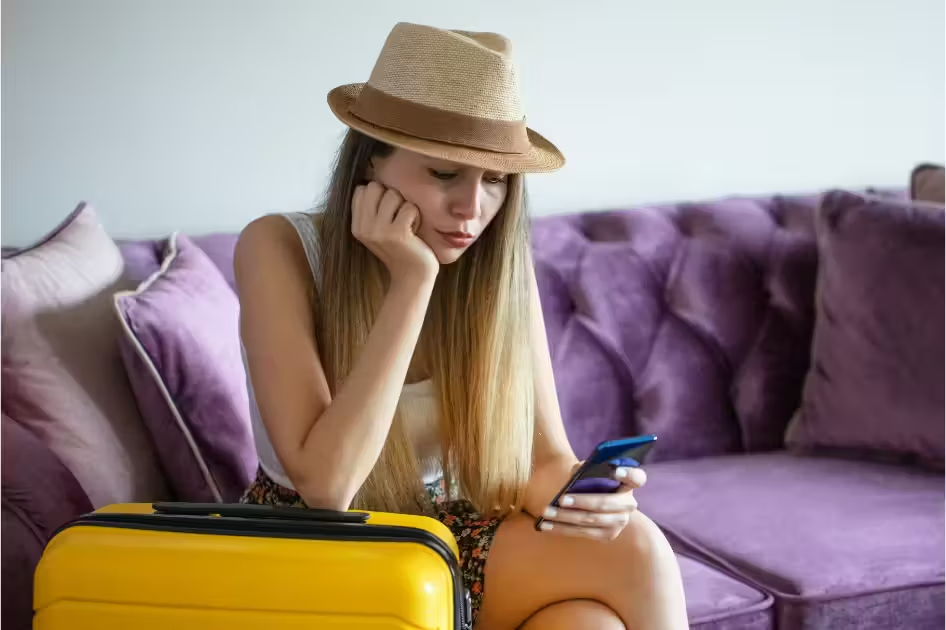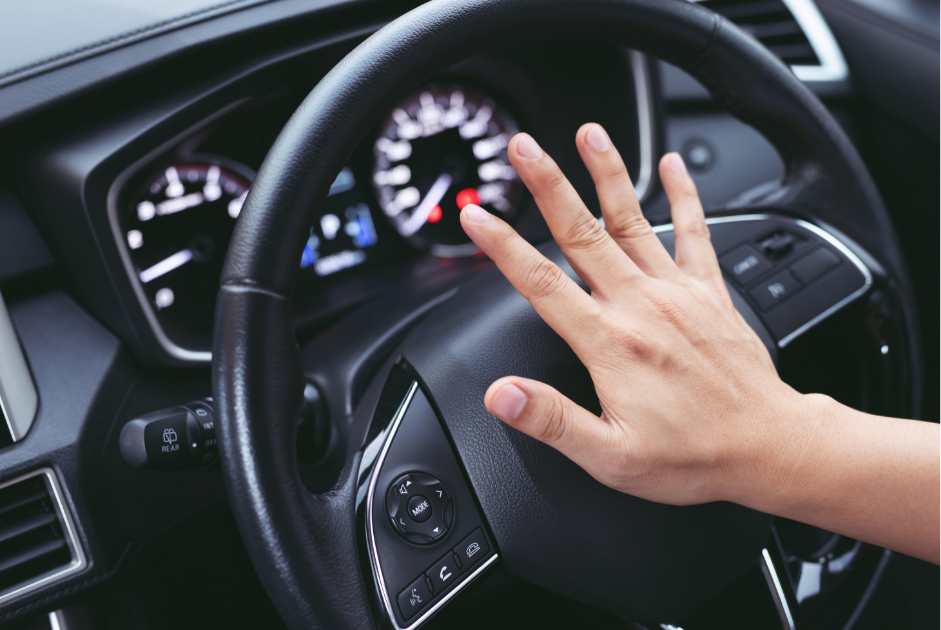5 tricks for people with phone anxiety to gracefully end a phone call
It may seem simple, but the awkwardness of ending a phone call can feel debilitating to some.

Phone anxiety is surprisingly common.
Some people love to talk on the phone, chatting up their friends, family, and acquaintances, effortlessly making conversation from the first "Hello?" to the final "Bye." Others would rather have a root canal done. For people with phone anxiety—also known as telephobia—phone calls are painfully uncomfortable, and just the idea of making a phone call or answering the phone can be enough to send telephobic folks into a panic.
There are far more people with phone anxiety than you might think. A study of office workers in the U.K. in 2019 found that 76 percent of millennials surveyed dealt with phone anxiety, compared with 40 percent of the boomers. Even 40 percent is a lot of people, but three out of four millennials? That's astronomical. Research from Australia shows numbers for Gen Z, who tend to be more prone to anxiety and less experienced with phone calls than their predecessors, to be even higher at a whopping 90%.
People's reasons for being anxious about phone calls vary, but much of it boils down to not being able to see the person we're talking to. In real-life conversations, we rely a lot on non-verbal communication cues, but on the phone we only have our voices to go on. Not having any idea how the person on the other end of the call is receiving what we're saying creates anxiety, and not having any physical cues that aid with the ping-pong of natural conversation can lead to awkward moments of talking over one another.
But perhaps no part of a phone call is worse than the awkwardness of ending one. In real life, you can start gathering your things or use body language to subtly indicate that you're ready to end a conversation. On the phone, you have to signal that verbally, and some of us just aren't adept at the subtleties of graceful verbal exits. "I'm ready to be done talking on the phone now" is what we want to say, but that sounds abrupt. And then there's the back-and-forth pleasantries that seem to have no naturally smooth end to them. For those with socially anxious tendencies, the awkwardness of those final moments of call is unbearable.
However, all is not hopeless for the phonephobes of the world. Ending a call is a skill you can learn and hone with a handful of tools and tricks, like these 5 ways to gracefully end a phone call.
1. Set a time expectation at the beginning of the call that you can reference at the end
This is a "start with the end in mind" tip. When there's a time frame set at the beginning of the call, it's easier to wrap things up without seeming overly eager to get off the phone. Offering a shorter amount of time than you think the call might take helps here. If you know you're not going to want to talk for more than 15 minutes, say you have "about 10 minutes" and then you can give them a little extra. Pepper in some pleasantries, and this trick can give you a natural time to start ending the call.
Beginning of the call: "Hey there! So happy to hear from you! I've got about a half an hour to chat."
After 30 minutes: "Gosh, that time went so fast! I do have to get going, though…"
And if you want it to be a quick call: "Hi! I've got 5 minutes here. What's up?"
At 5 minutes: "I wish I had more time, but let's chat again soon."
If you're the one making the call, you can still set a time frame expectation: "Hey, do you have 10 minutes to chat?" or "I won't keep you long, I just wanted to ask you about…"
2. As you start to feel ready to end the call, indicate a specific amount of time you have left to talk
Instead of, "Okay, I have to go now," which can feel awkward and abrupt, tell the person you have just a minute or two before you have to get off the phone. You don't even have to say what you're doing, just indicate that you need to go soon.
"I've got about a minute before I have to go…"
"I have to run in like two minutes, but I want to hear about…"
"Let me tell share this one last thought and then I have to go."
3. Start using past tense to talk about the conversation you just had
If the goal is to lead the person to the end of the conversation, start talking about it like it's already ending.
"It's been so great to chat with you!"
"This conversation has been so lovely. I've really enjoyed talking with you."
"So glad you called! It was so nice to catch up."
"I'm glad we had the chance to talk about this. It was really important/helpful/enlightening."
4. Express gratitude for the call
A lot of hesitation with ending a call is being afraid the other person with feel like you're trying to get away from them or that you're tired of talking to them. Sometimes that might be the case, but even if it is, you won't want to seem rude. One way to mitigate that is to thank them, which is simple courtesy anyway but also an indicator that it's time to wrap up.
"Thanks so much for calling!"
"I'm so grateful I had the chance to talk with you."
"Thank you for taking the time to chat with me. I really appreciate it."
5. Focus the final wrap up on the other person
So often anxiety makes it so we focus more on what we're saying or thinking about saying than what the other person is saying. But if you focus on really listening, you can reflect back what the person was talking about as way to indicate it's time to conclude the call.
"Oh my gosh, I've just loved hearing about how your job is going and what so-and-so has been up to. So glad things are going so well."
"Well, I'm really sorry to hear about [whatever struggle they've shared] and I hope things turn around soon."
"I've got to get going, but best of luck on your [something they talked about]. You'll have to let me know how it goes."
Ending a phone call may feel like torture for some of us, but as with most anxieties, exposure helps. The more you practice with some specific skills like utilizing the above tips, the easier and more natural it becomes. You might still prefer not to make phone calls if you can help it, but at least when you find yourself on a call, you'll find it easier to leave the conversation without too much excruciating awkwardness.



 Teens hanging out in a living room.via
Teens hanging out in a living room.via  Teenagers eating pizza.via
Teenagers eating pizza.via  Teenagers eating pizza.via
Teenagers eating pizza.via 

 Woman disappointed by last minute cancelled plans.
Woman disappointed by last minute cancelled plans.  Sitting closer than necessary to someone is rude.
Sitting closer than necessary to someone is rude.  A person honks their car horn.
A person honks their car horn. 
 Abraham Lincoln portrait by Alexander Gardner in 1865.
Abraham Lincoln portrait by Alexander Gardner in 1865.
 Student smiling in a classroom, working on a laptop.
Student smiling in a classroom, working on a laptop. Students focused and ready to learn in the classroom.
Students focused and ready to learn in the classroom.